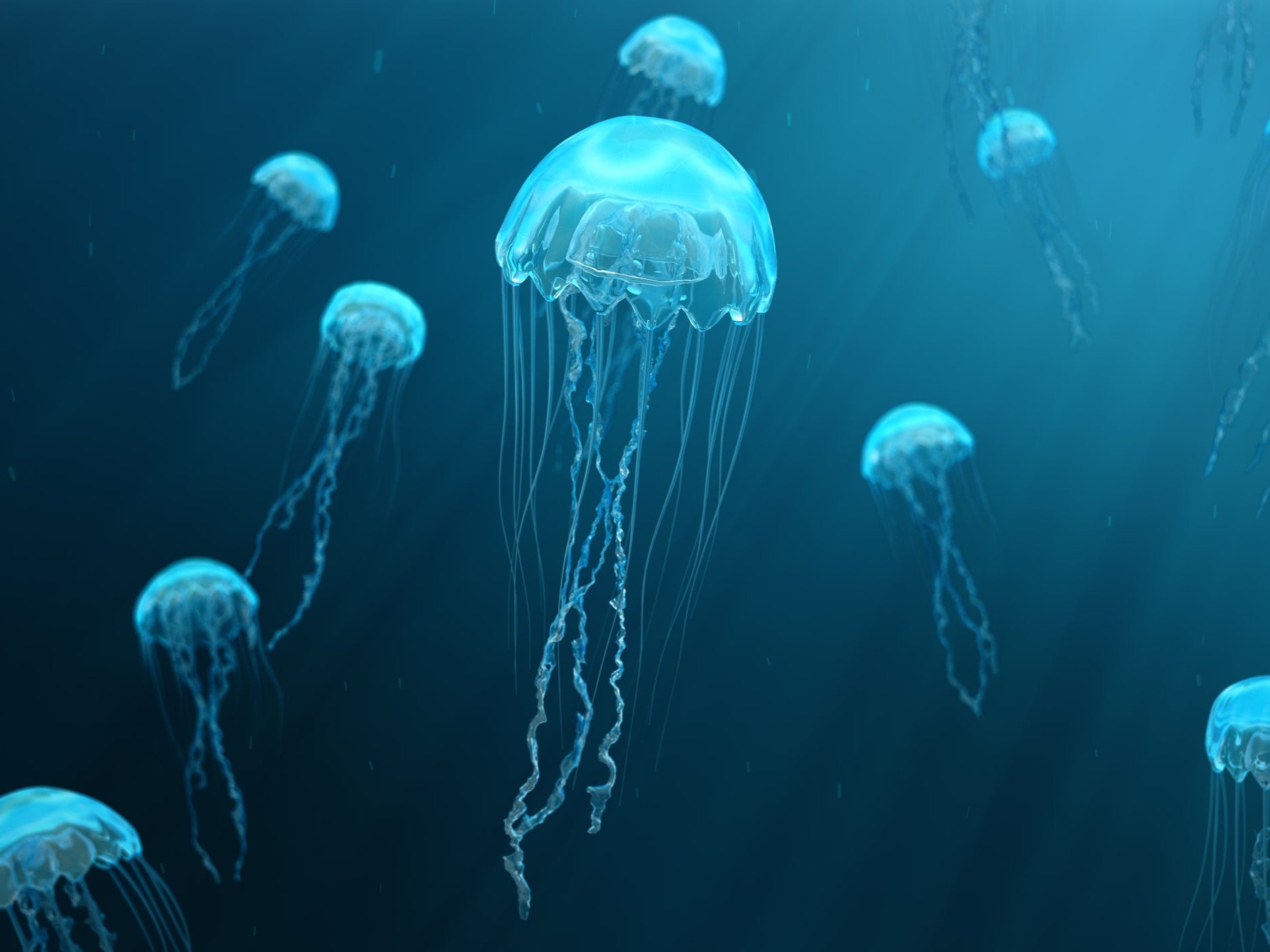Jellyfish could replace cod on fish and chip menus in future, researchers claim
‘We would never consider eating mountain gorillas or elephants, both of which are endangered,’ researcher states

Jellyfish could become commonplace on menus at fish and chip shops in the future in an effort to protect critically endangered seafood, researchers have claimed.
Academics from the University of Queensland in Australia recently conducted a study of fishing records across the world.
Following their analysis, they discovered that 92 endangered species of seafood and 11 species classed as critically endangered were being caught.
This could mean that species of seafood on the brink of extinction could be legally being caught and served to diners at restaurants, explained Leslie Roberson, a PhD student at the university’s Centre for Biodiversity and Conservation Science.
“This could mean that the ‘fish’, ‘flake’ or ‘cod’ that Australians typically order at the fish and chip shop could be critically endangered,” she said.
Ms Roberson stated that seafood served in Australia is “not as sustainable as consumers would like to think”, adding that it is “definitely not in line with many of the large international conservation agreements that Australia has signed to protect threatened species and ecosystems”.
“We would never consider eating mountain gorillas or elephants, both of which are endangered,” the PhD student remarked.
The researchers at the University of Queensland stated that jellyfish could be used as a sustainable alternative at fish and chip menus in future to protect endangered species of seafood.
“It is possible to manage our fisheries sustainably and eat species that can survive the fishing pressure,” Ms Roberson said.
“We just have to care about weird-looking squishy things like sea cucumbers and halibut and dogfish the same way we care about dolphins.”
Dr Carissa Klein, a senior research fellow at the University of Queensland, stated that Australia is regarded around the world as “having effective conservation and fisheries management policies”, while importing “around 75 per cent of the seafood” members of the public eat.
"When importing seafood from other places, we are displacing any social or environmental problems associated with fishing to that place, which is likely to have less capacity to sustainably manage its ocean,” the academic said.
Join our commenting forum
Join thought-provoking conversations, follow other Independent readers and see their replies
Comments
Bookmark popover
Removed from bookmarks